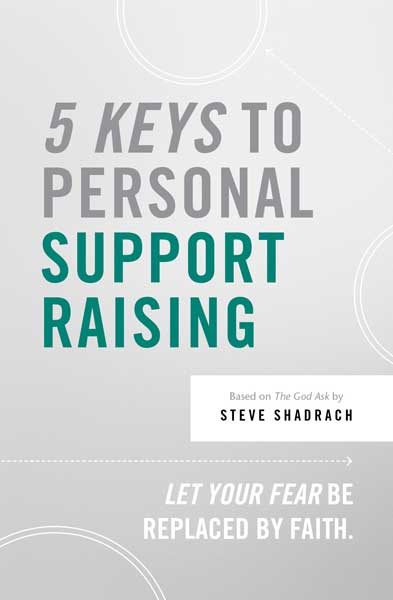
As a leader, are you confident your staff and ministry demonstrate timely thankfulness to giving partners? Perhaps you have not given this question much thought, but as a leader I’m sure you realize that both thanklessness and thankfulness are contagious.
Here are three benchmarks to help you lead:
Do you (and your organization) say thank you immediately?
Recently my wife, Alma, and I received an appeal from a mid-career friend who was joining a ministry. We gladly agreed to support her monthly and sent our first gift, then a second, and a third. But neither our friend nor her organization acknowledged our giving. After six months, the organization’s leader sent an email gift-acknowledgement with an apology.
Why are some mission workers and organizations slow to say thank you? Is it a sense of entitlement or Missionary Elitism: “I am called to ministry. I need not say thank you because I sacrifice so much for God.”
Perhaps your culture doesn’t put a high value on saying thank you in writing. Okay, then what is your plan to genuinely thank giving partners immediately after they have given?
Do you intend to say thank you or do you actually say thank you?
Perhaps thankfulness wells up inside you when you hear of a donor’s gift, but does it translate into action?
No leader purposely decides not to thank giving partners, but how do you find the time? As a leader, I’ve been there. The cycle of busyness can be broken. There is time in God’s grand design to say thank you well.
Jesus thought thankfulness was important. He healed 10 lepers but only one, a Samaritan (not a Jew!) came back to give honor and thanks to God. Jesus did not “let it go.” He asked, “What about the nine?” Too busy?
How often do your giving partners hear a word of thanks from you?
I ask gospel workers, “How many newsletters have you sent these last 12 months?” Often, they hang their head and say, “Not enough.” To give you an example (and I don’t have a Bible verse on this), my giving partners hear from me three times per year hard copy, plus three to four short email blasts. And at Thanksgiving I send them a gift of a planning calendar with a special thank you. In addition, I send texts and one-off notes when a giving partner comes to mind.
How do we learn gratitude? I believe gratitude is learned from parents. As kids, if my brothers and I failed to thank our host after a nice meal, my mother marched us back into their home to say, “Thank you, Mrs. Jones. The dinner was delicious.” Mechanical? Yes. But a lifelong habit was formed.
But here is the real issue: A thankless attitude is a sinful attitude! In Romans 1, Paul famously outlines the decline of civilization into debauchery with phrases like “they became futile in their speculations” and “worshipped and served the creature rather than the creator.” But he adds, “neither were they thankful.” Paul ranks thanklessness with other major sins!
Thankfulness goes beyond merely expressing thanks to our giving partners. If you don’t thank a grocery clerk who went to the back to get you fresh bananas, neither will you thank donors.
As a leader you can and you must model a culture of thankfulness. It’s contagious!
Takeaway
With your staff, discuss ways to creatively say thank you, such as:
- When a giving partner comes to mind, text him or her: “Thought of you this morning. Thank you for your gift of $____ this month.” Be specific.
- Text two major donors from the airport. “Leaving for Dubai in a few minutes. Please pray for my presentations on servanthood. Appreciate you.”
- Upon your return, send an email or social media thank you. No attachments. No appeal.
- Discuss: When you get a new giving partner, what memorable action will you take within 48 hours to welcome them to your funding team?
What I do
At staff meetings, I sometimes announce a do-it-now “Thankfulness Assignment” to write a short, hard copy thank you to a donor. I supply stationery and postage. My assistant collects the letters and mails them.
Also, I have a new donor welcome letter on my computer ready to send. I or my assistant merge the name and gift amount and mail it within a couple days (hard copy) with a small booklet as a “welcome to the team” gift. Personally signed.

